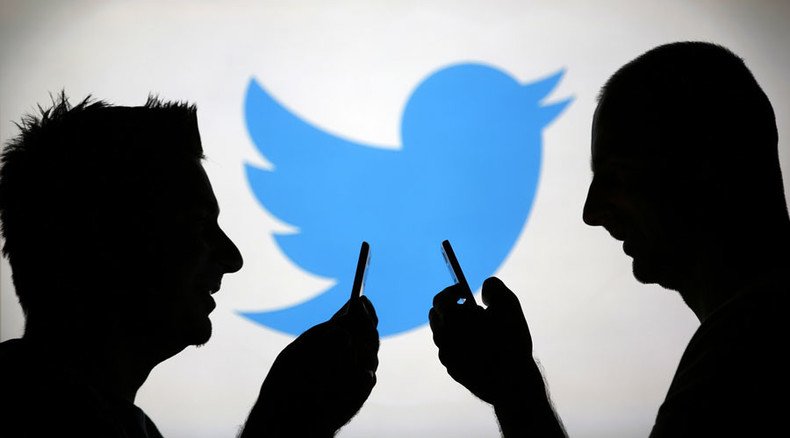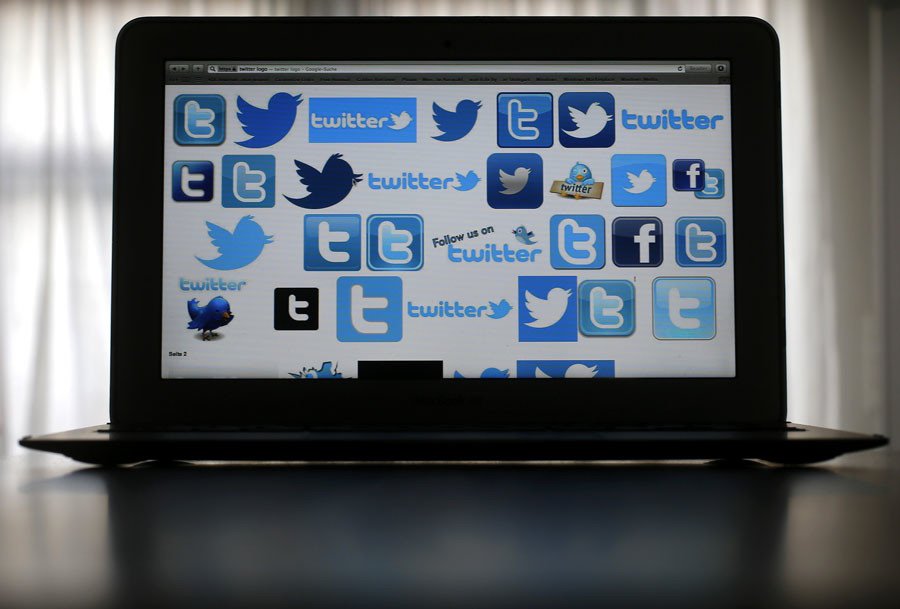‘Twitter’s trying to copyright jokes now? Good luck with that!’

There’s a long history of comedians stealing each other’s jokes, so attributing authorship and ownership of a joke – especially on Twitter – is going to be challenging, Ted Rall, political cartoonist and author told RT.
A number of freelance writers, including Olga Lexell, who consider jokes to be intellectual property, submitted a request to remove tweets on copyright grounds. Bizarre as it may sound, Twitter has launched a crackdown, deleting a whole bunch of tweets after users were accused of “stealing” other people’s jokes.
RT: From now on, Twitter is to withhold jokes believed to be stolen from their owners. Do you think it will work?
Ted Rall: I have no idea whether it will work or not – there is long history of people stealing each other’s jokes. I’m a cartoonist, and cartoonists often steal each other’s jokes. One of things that you notice as a cartoonist is that the same old gags keep reappearing, year after year after year. And I think old jokes are dragged up and presented as new jokes and recycled. It is a little irritating to us because we all know that these are old jokes. But then editors and writers and readers say: “Oh my God that’s so clever, that’s so funny!” And we know it is just some old joke from the 1940s. I don’t know that it will definitely work, but I understand the motivation behind Twitter’s new policy. I can definitely see what they are doing. It is definitely like trying to push up against the sea though. The ability to control this sort of thing – God bless them for trying, but good luck!

RT: How far could this go? What could be the reaction of the online community?
TR: In fact, Twitter is all about copying and group communities and re-tweeting. Most people are re-tweeting and favoriting other people’s tweets rather than offering their own tweets. It is actually a radical reconception of what Twitter really is. Under 140 characters you’re just talking about a lot of random thoughts. Twitter is essentially a bunch of brain farts. Once you start copywriting the material in Twitter, what you’re saying is that this material is valuable and has value and is intellectual property. I’m not saying that’s not true or that it’s not a good idea, and I don’t really understand the implication at this point, but I will say that the implications will be significant. It makes people think completely differently about the internet, and also about the idea of shared communal cyberspace.
RT: Do you think reposts could also fall victim to the new policy?
TR: Yes, obviously what is good for jokes is good for everything else. If something is intellectual property and thus [protected] by copyright, why would anything not be? So it stands to reason, logically, if there is a legal protection for humor on Twitter, then there should be legal protection for humor in general or for news, or just for anything. If you have an observation about the best food to feed your dog, theoretically that could be copyrighted. If someone else said the same thing, you can accuse them infringing upon your copyright.
RT: It seems people are being more and more deprived of their online freedoms. What do you think about this?
TR: I have to say that the online space, especially in the US and in the west, but I think in general, tends to be pretty freewheeling and libertarian. It seems that this policy will come into conflict with the spirit of the way most people feel about Twitter. I can argue this from either side – from [the] libertarian side. I could see this as infringing upon the freedom of speech that allows the internet to be such an interesting space. But on the other hand, it is also nice to see as a content creator some value being offered for people’s creativity, even if it is creativity in less than 140 characters.
RT: Will it be easy to find the author and prove the authenticity of claims for a joke?
TR: Attributing authorship and ownership of a joke on any kind of space has always been challenging. It is very difficult to even attribute the origins for linguists or words, or phrases or clichés, for example. People are constantly misattributing quotes from history or literature. It is going to be quite the challenge, and I guess that opens the possibility for a whole new variety of litigation, lawsuits and intellectual property disputes. So I don’t know – it’s going to be interesting.
RT: What could be the punishment for those who dare to steal jokes?
TR: In the US, if you violate copyright law, which is what we’re talking about here, the typical sanction is that you will be liable for three times the value that you would normally receive for that copyrighted material in the open market. So the question of interest: if and when, and I guess we are taking about when this would go to trial, is what is the value in money for a joke on Twitter? Currently, that value is zero. But if it is copyrighted, then there is an inherent intrinsic value to a joke. And comedians make money from jokes. So jokes do have value. So the question is what is that rate and multiply that by three – and that would be the typical sanction at some point. But you’re not just talking about opening up a brand new field of dispute litigation and copyright law. That is brand new – there is no way to know how this is going to go down.
The statements, views and opinions expressed in this column are solely those of the author and do not necessarily represent those of RT.
The statements, views and opinions expressed in this column are solely those of the author and do not necessarily represent those of RT.












